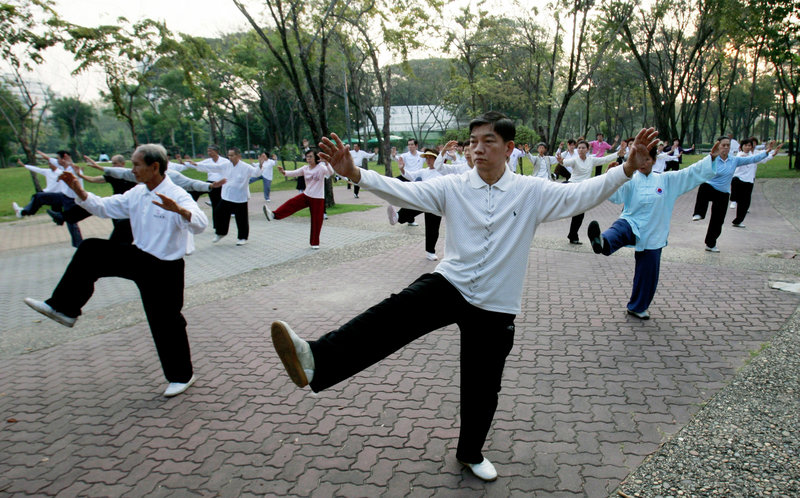LOS ANGELES – Don’t despair if you can’t fit in the recommended 30 minutes of daily exercise. Growing evidence suggests that even half that much can help.
It’s still no excuse to slack off. Regular exercise strengthens muscles, reduces the risk of some diseases and promotes mental well-being. The more exercise, the better.
But not everyone has the time or willpower. So researchers set out to find the minimum amount of physical activity needed to reap health benefits. The findings by a study in Taiwan suggest just 15 minutes of moderate exercise a day can lead to a longer life.
This “may convince many individuals that they are able to incorporate physical activity into their busy lives,” Dr. Anil Nigam of the University of Montreal said in an email. Nigam had no role in the research, but wrote an editorial accompanying the Taiwan study published online Monday in The Lancet.
Fitness guidelines by the World Health Organization, the U.S. and other countries recommend that adults get at least a half-hour’s moderate workout most days of the week. This can include brisk walking, bike riding and water aerobics. The latest study, a large one led by researchers at the National Health Research Institutes in Taiwan, sought to determine if exercising less than the recommended half-hour was still helpful.
About 416,000 Taiwanese adults were asked how much exercise they did the previous month. Based on their answers, they were put into five groups of varying activity levels from inactive to highly active. Researchers tracked their progress for eight years on average and calculated projected life expectancy.
The study found those who exercised just 15 minutes a day — or 90 minutes a week — cut their risk of death by 14 percent and extended their life expectancy by three years compared with those who did no exercise. Men and women benefited equally from the minimum activity.
Each additional 15 minutes of exercise cut the risk of death by another 4 percentage points compared with the inactive group. Researchers did not report how additional exercise affected life expectancy.
There were some limitations. Answers were self-reported. The study, though large, was observational, which means the health benefits may not be entirely due to exercise. But researchers said they took into account other factors that might affect health such as smoking and drinking. And outside scientists said the findings are in line with other studies.
For the sedentary, the key is this: Some exercise is better than none.
“Get off the couch and start moving,” said I-Min Lee of the Harvard School of Public Health.
In a study published in Circulation earlier this month, Lee and colleagues found that people who engaged in 15 minutes a day of moderate physical activity had a 14 percent lower risk of heart disease compared with inactive people.
That research, combining the results of nearly three dozen studies of people from North America and Europe, also found that the benefit increased with more activity and may provide more motivation to the physically fit.
Send questions/comments to the editors.



Success. Please wait for the page to reload. If the page does not reload within 5 seconds, please refresh the page.
Enter your email and password to access comments.
Hi, to comment on stories you must . This profile is in addition to your subscription and website login.
Already have a commenting profile? .
Invalid username/password.
Please check your email to confirm and complete your registration.
Only subscribers are eligible to post comments. Please subscribe or login first for digital access. Here’s why.
Use the form below to reset your password. When you've submitted your account email, we will send an email with a reset code.